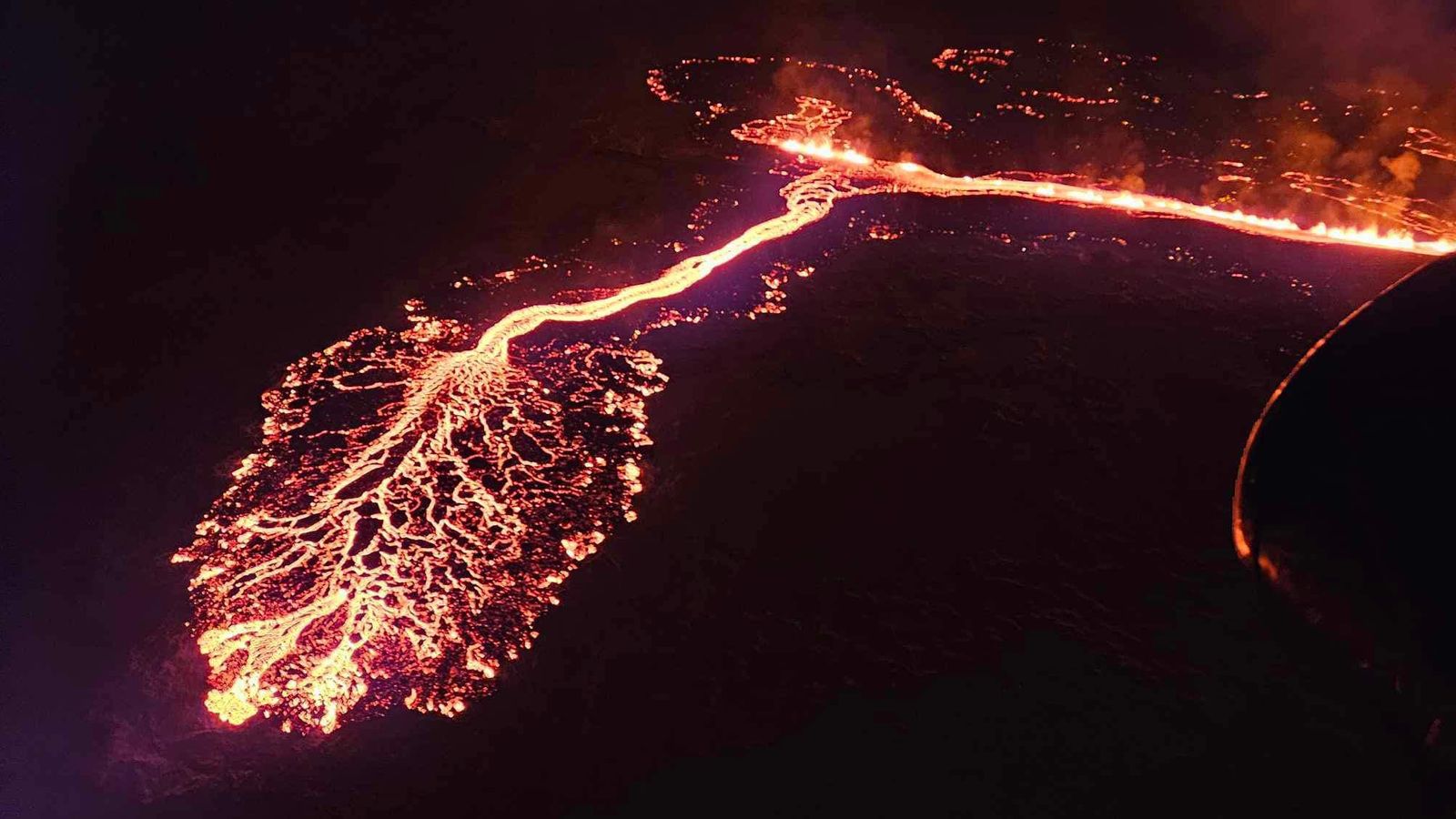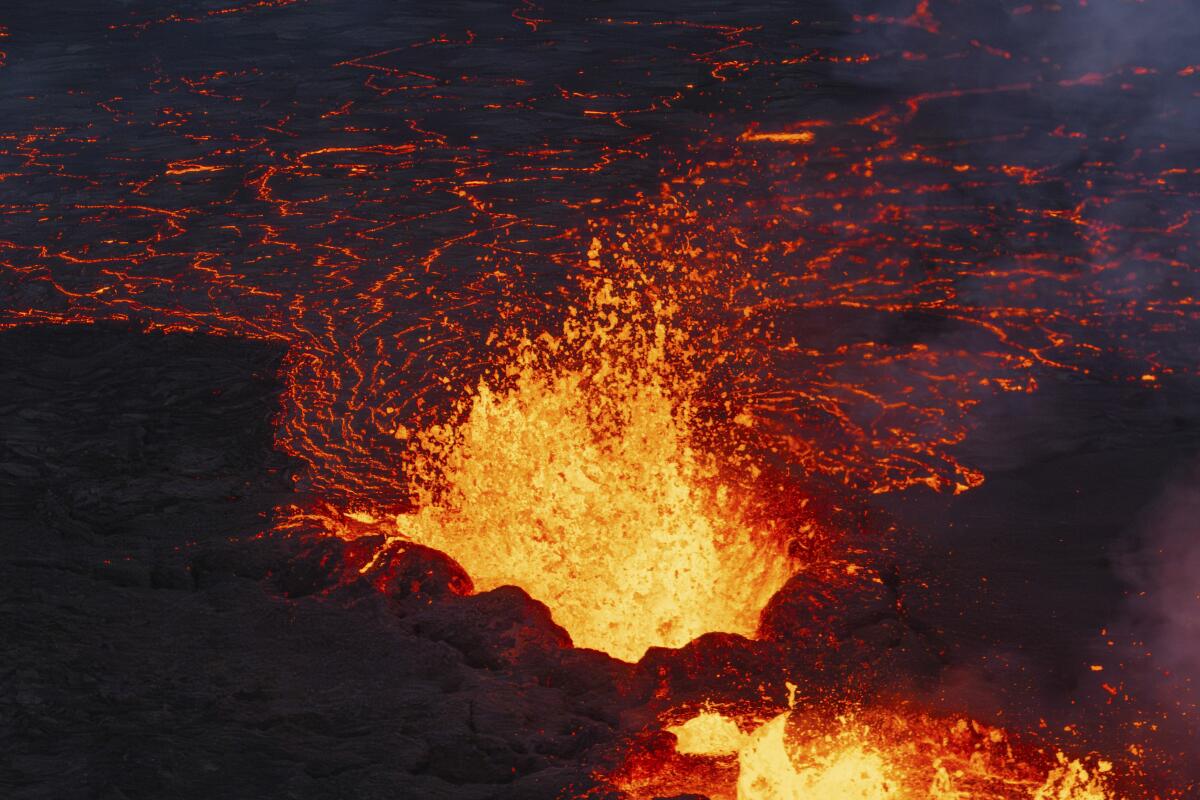Iceland Volcano Unlikely To Impact Flights, Lava Moves Away From Towns
The government said that the Iceland volcano unlikely to impact flights. This eased worries about international travel that were still there after the chaos caused by the ash cloud from an eruption on the North Atlantic island in 2010.
Author:Rhyley CarneyReviewer:Paula M. GrahamDec 20, 20237.9K Shares105.6K Views

Officials said on Tuesday that lava from an Icelandic volcano seemed to be moving away from the only town nearby, and the eruption was becoming less intense. This gave people hope that their homes would be safe, even though the shaking could last for months.
The government said that the Iceland volcano unlikely to impact flights. This eased worries about international travel that were still there after the chaos caused by the ash cloud from an eruption on the North Atlantic island in 2010.
Late Monday night, an eruption on the Reykjanes peninsula in southwest Iceland sent lava and smoke more than 100 meters (330 feet) into the air. This happened after weeks of very strong earthquakes.
Iceland Volcano Unlikely To Impact Flights
On Monday night, there was an explosion near the town of Grindavik. The Reykjanes Peninsula in Iceland had a volcano erupt on Monday night. This happened weeks after thousands of small earthquakes hit the southwest coast.
On the evening of December 18, 10:17, the explosion began about 4 km northeast of Grindavik. It was possible to see magma, which is half-molten rock, spewing along the slope of a hill as the eruption spread. The place is still closed off, and hiking is not allowed there.
Keflavik International Airport, Iceland's main international airport, is still open and flights are still coming and departing, even though it is only 20 km north of the eruption site. But the road that goes from the airport to Grindavik is shut down. It's still possible to get around Reykjavik, but the Icelandic Met Office says that pollution could hit the capital on Wednesday.
Even though there are worries about how the eruption will affect travel, the close Keflavik Airport is still open. ISAVIA, which runs Iceland's airports, tells people to check this page for flight details.
Volcanic events can be very dangerous for air travel because the ash they send into the air can damage flight control systems, break down jet engines, and make it hard to see.
But in this case, there is little to no ash emission, as shown by the orange flight alert that Iceland's government issued.
Many people still remember how badly foreign flights were affected in 2010 when the Eyjafjallajokull volcano in Iceland sent huge clouds of ash high into the air over Europe. There were worries that the fine ash could damage jet engines, which caused 100,000 flights to be canceled and left millions of foreign travelers stuck. Flights were stopped for days.
Because of where and how this eruption is happening, experts say it probably won't make as much ash or cause as much trouble. On Tuesday, a U.S. weather reporting company called AccuWeather said that no ash cloud had been seen.
A scientist from the University of Bristol named Sam Mitchell says that Monday's eruption was very different from Eyjafjallajokull's in 2010. That time, "a large explosive eruption under a glacier produced a very large cloud and very fine ash in the atmosphere when the wind direction was pointing towards mainland Europe."
Several European foreign offices have told travelers to stay away from Grindavik and follow the rules that are in place there. For the most up-to-date information, they tell travelers to check out the Icelandic Met Office and Safe Travel Iceland.
They have told people that the area around the eruption is closed until further notice, and they ask that people accept this. But they haven't told people not to go to the country at all. People who want to visit should stay away from the area around the earthquake and do what the local authorities tell them to do.
Countries have not issued a "no-go" travel warning for Iceland. This means that airlines and vacation companies are still running as usual, and travelers who stop their plans do not automatically get their money back.
Final Words
Recent volcanic activity in Iceland has made people in Europe worry that plane travel might be impacted. However, since daily earthquakes are becoming less common and there is a strong plan for being ready, the chance of major flying delays is very low.
Also, planes learned a lot from the huge problems that happened in 2010 when Eyjafjallajokull erupted and made an ash cloud that stopped more than 100,000 international flights. Studies done since then have made it less likely that the chaos caused by the Icelandic earthquake will happen again. Because authorities and other important people now have a better idea of the threat, airlines are more likely to keep flying smoothly.

Rhyley Carney
Author

Paula M. Graham
Reviewer
Latest Articles
Popular Articles
